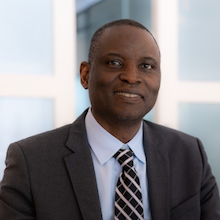One year ago, world leaders, representatives from the public and private sectors, and civil society gathered in Marrakech for the World Bank Group and IMF Annual Meetings. Discussions centered on climate change, debt management, employment, and gender equality, highlighting the need for collective action on these pressing global challenges. It was also at these meetings that the Bank unveiled its roadmap to delivering on its ambition to create a world free of poverty on a livable planet and kicked off our efforts to being a better Bank.
The Marrakech meetings also served as a platform to showcase Morocco’s development achievements and bring international attention to how the country is moving forward to become a regional hub for connectivity and shared growth. At the same time, Morocco has significantly advanced its development goals, including by reducing extreme poverty to below two percent. In 2021, under King Mohammed VI, the New Development Model (NDM) was launched, driving infrastructure improvements, job creation, and efforts in ecological transition and human capital.
Progress in girls' education has been notable, with girls surpassing boys in expected years of schooling — 10.5 years for girls compared to 10.3 years for boys in 2020, according to the World Bank's Human Capital Index. Throughout, the World Bank Group has supported Morocco's transformative initiatives in social protection, healthcare, education, and higher education.
A RICH PARTNERSHIP



